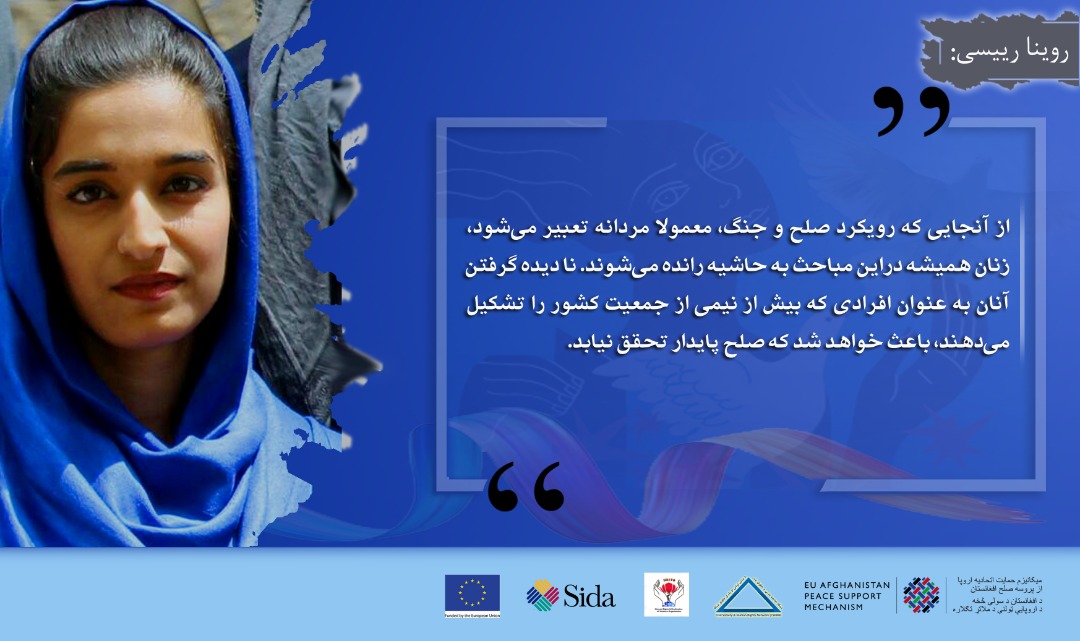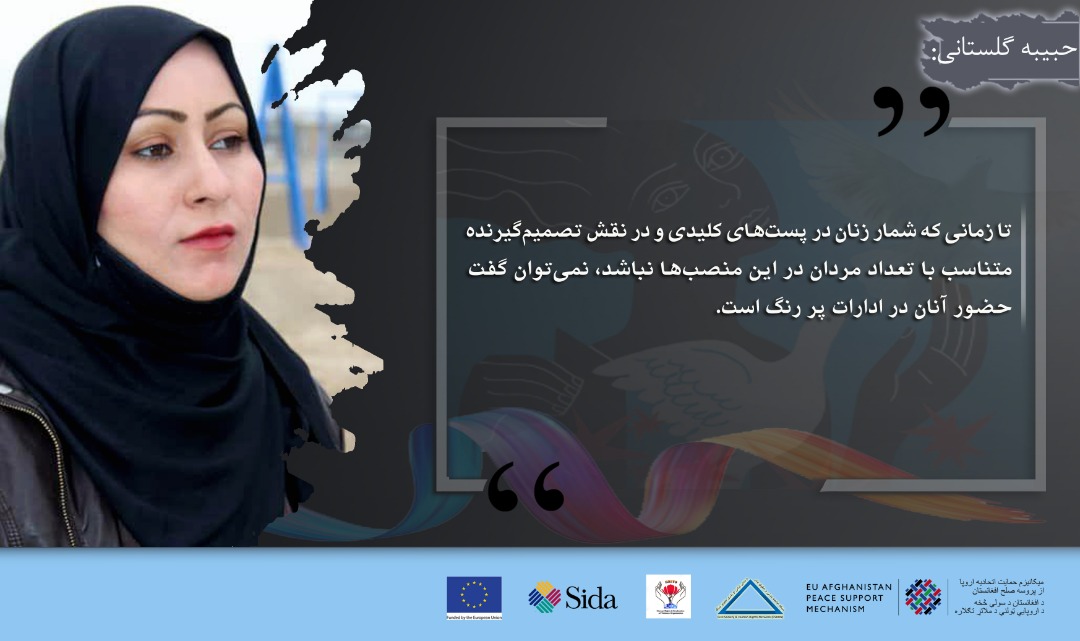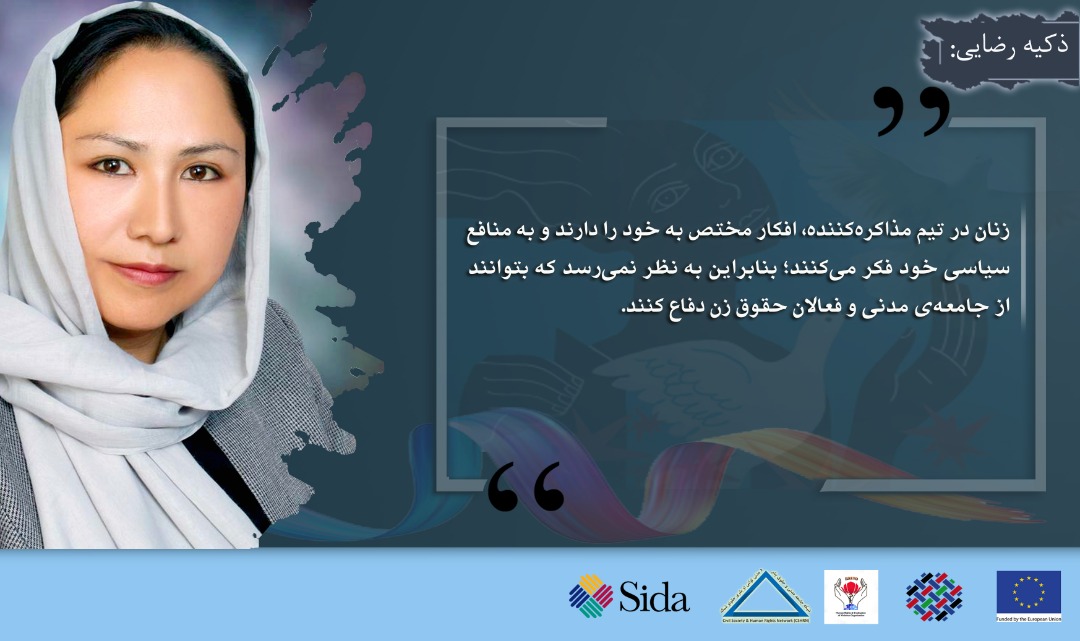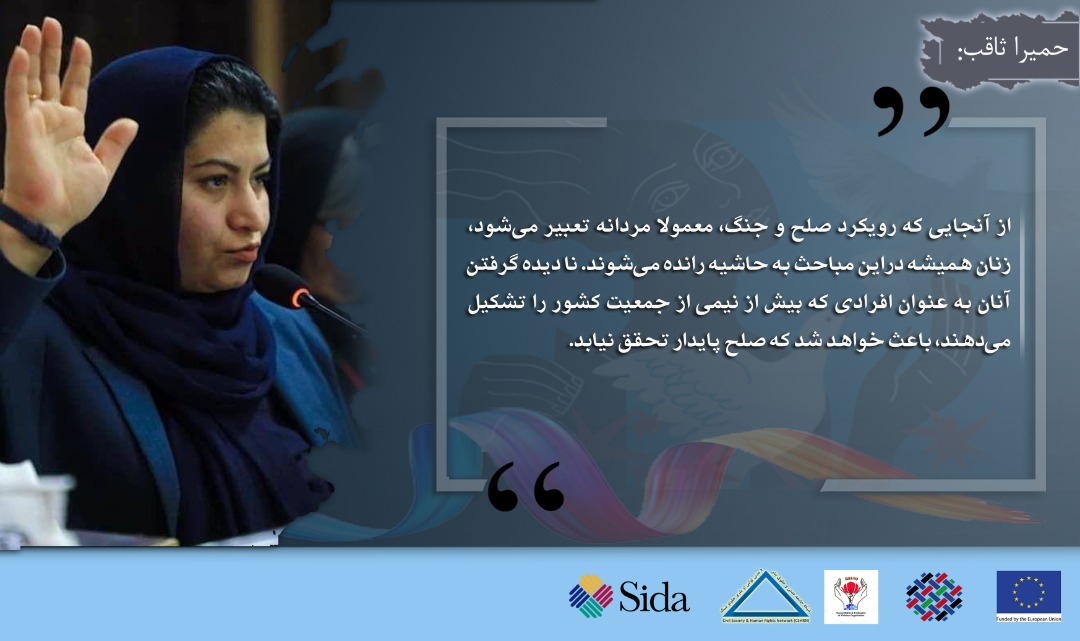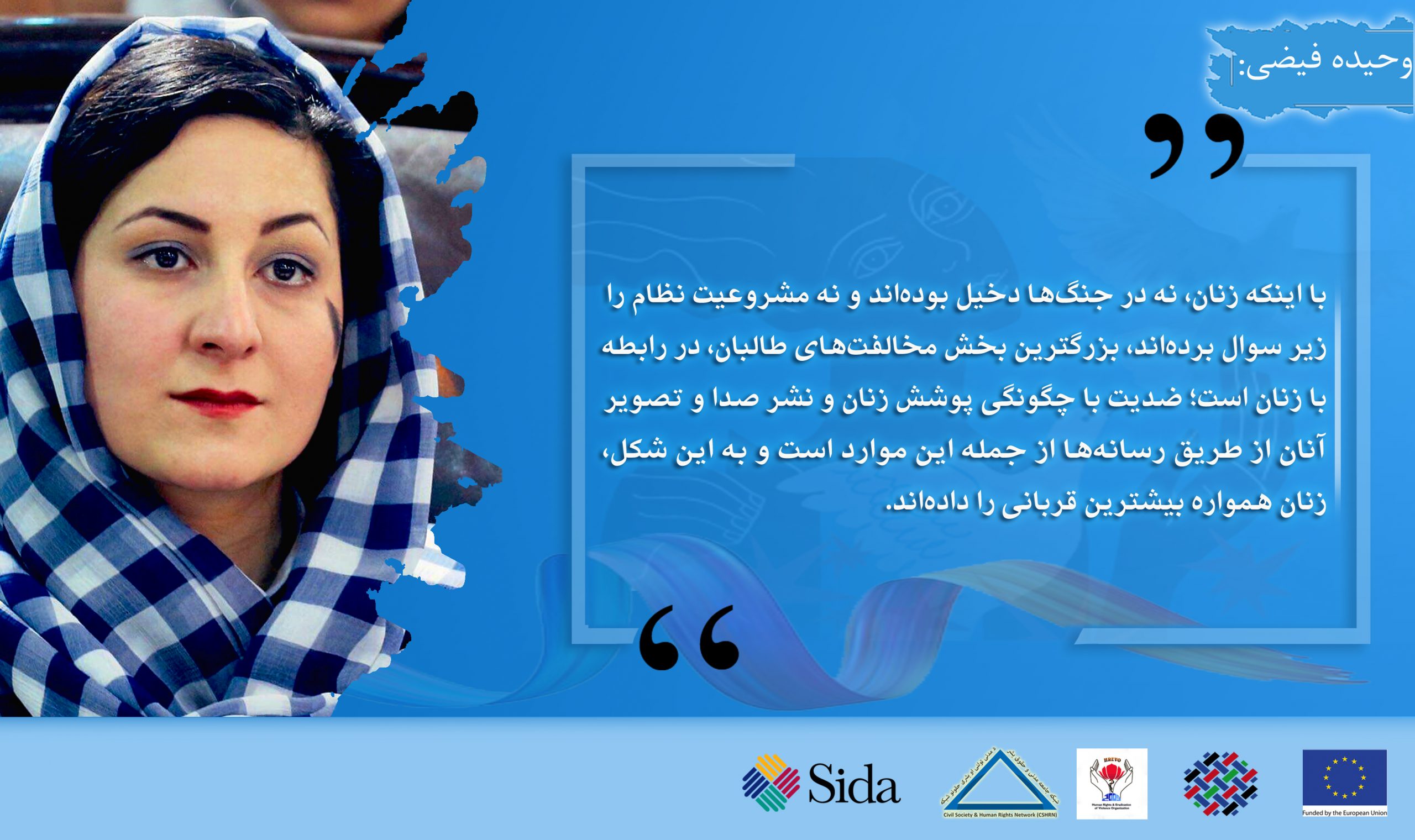Women Should not be Sacrificed in Peace Talks
One of the major concerns is the issue of ignoring women’s rights and achievements. Some women's rights activists in Baghlan have recently expressed their concern with the slogan "We will not retreat to the past." In peace-related matters, women’s achievements attained through hard-work should not be ignored or sacrificed", says Royina Raisi, president of New Season Community, in an interview with CSHRNCSHRN: Which issues should be discussed in peace talks with regards to women? Raisi: Women’s rights to education and employment should be preserved following a peace agreement. These rights are enshrined both in Islam and the constitution, leaving no reasons for school gates to be closed. Referring to the composition of the negotiating team and the insignificant presence of women in politics, Ms. Raisi said that they should be given equal share of opportunity based on their merits, talents, and abilities. Moreover, the team should be comprised of women who can represent all women and defend from their rights.CSHRN: Can female members of the negotiating team represent Afghan women?Raisi: The current composition with limited number of women, five members only, cannot represent women, because they are affiliated to parties and speak just for their benefits. Naturally, they cannot represent women who have paid sacrifice for years.CSHRN: What will happen if the necessary agreement is not reached in the intra-Afghan negotiations?Raisi: Restrictions might be imposed, especially on women who are involved in the judiciary like us. Taliban have already criticized our activities in this sector. Furthermore, female journalists and women in politics may face difficulties in terms of freedom of speech and thought.According to her, women in Baghlan are still facing various problems, including security, which in some cases prevent them from going to work. "Sometimes, we cannot implement our awareness programs outside the city or even in the…
